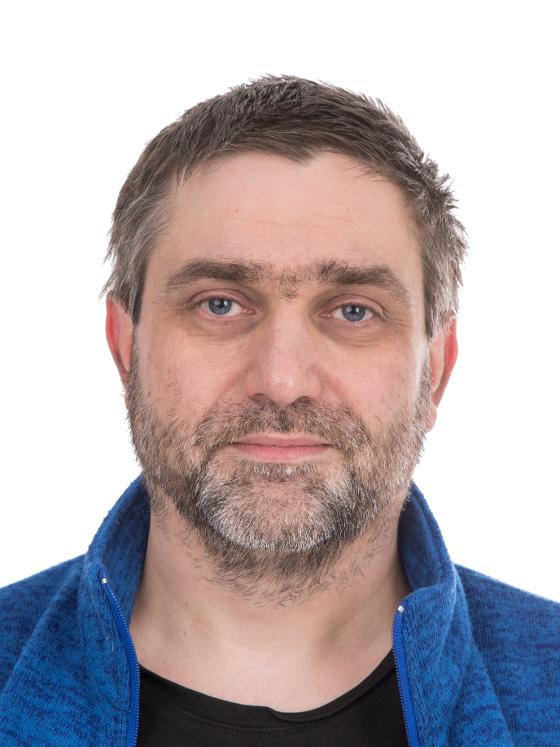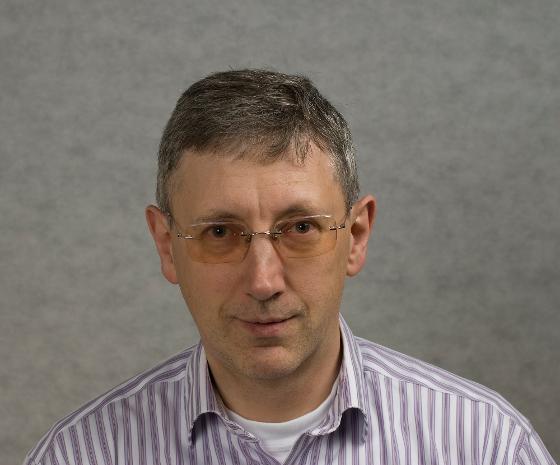Tromsø
Nordic applicants: 15 April, EU/EEA + Swiss applicants: 1 March, Non-EU/EEA applicants: No admission
Search engines, social media and smart devices have become an integral part of everyday life. We forget about the advanced programming and algorithms allowing you to check restaurant menus in New York on your phone while adding items on your smart fridge's shopping list. We only notice security programs keeping our electronic devices safe from worms and viruses when they ask their annual fee, and most of us are unaware of the complex systems behind the colorful and stylish apps we see on our mobile screens. Computer science and technology surrounds us.
This advanced international master program gives you a practical approach to computer science and you will improve your skills to design, develop and program advanced computer systems.
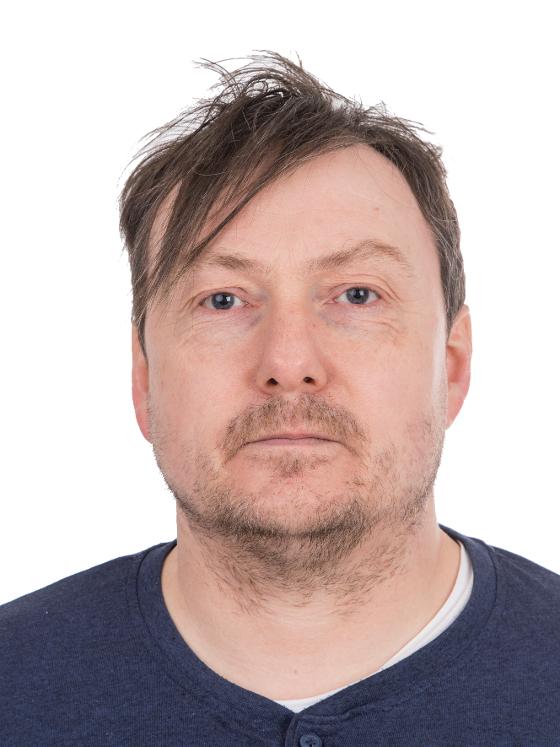
Jan Fuglesteg
Student advisor
The program builds on skills in basic programming and database systems acquired through a bachelor’s degree (see admission requirements). It will provide you with a deeper and more detailed understanding on computer systems, software architecture and programming. Your master thesis towards the end of the program will allow you to develop a broader skillset within your chosen area of specialization.
The program consists of four mandatory courses in computer science with a total of 40 ECTS credits, and 20 ECTS credits of elective courses. The elective courses may be within topics such as economics, management, psychology and entrepreneurship, as well as computer science. The program concludes with a master thesis of 60 ECTS credits, which can be done in collaboration with an external IT-company.
This master’s program in Computer Science is unique in its very experimental approach with a lot of practical programming exercises and laboratory work. The computer science courses are taught by active researchers and professors and are directly connected to the on-going research projects carried out by the academic staff at the department.
Knowledge
The candidate has…
• a broad solid foundation in computer science
• considerable depth of understanding of a selected area of specialization
• a deep understanding on state of the art distributed and parallel software architectures
• a solid knowledge about risks and threats in computer systems and their related security measures
• a solid understanding of system and application development relevant to the chosen specialty
Skills
The candidate can…
• work independently on a significant non-trivial problem over a longer time-period
• analyze a problem and plan how to work towards a solution
• plan, organize and execute the work required to solve the problem. Adapt to changes and limitations.
• demonstrate the feasibility of the solution by implementing key parts
• collect and analyze relevant metrics characterizing the problem and the solution
• write a well-structured and clearly formulated report describing the thesis work and reflecting on its results
General competence
The candidate …
• has an interest for the continued development of computer science as a dynamic field under the influences of advances in the discipline, changes in technology, and in application areas, business models, and businesses.
• can communicate effectively, orally and in writing, within the field, and with the public as well as experts in other fields
• can pursue life-long learning and development
• is aware of relevant social and ethical issues and apply this awareness to their professional conduct
Admission to the Master’s programme in Computer Science requires a Bachelor’s degree (180 ECTS) or equivalent qualification, with a major in Computer Science of minimum 80 ECTS.
Applicants must have a minimum grade average comparable to a Norwegian C (2,5) in the ECTS scale, see the UiT webpage for International admissions for more information on how the point average is calculated.
Applicants with education from non-Nordic countries must document English language proficiency. You will find more information on English language requirements on the UiT webpage for International admissions.
Applicants from Norway or Nordic countries:
- The application deadline for Norwegian and other Nordic applicants is April 15th for admission to the autumn semester
- Online application, study code 4008.
- Her finner du all informasjon knyttet til søking og opptak.
Applicants within EU/EEA/Switzerland (except the Nordic countries):
- The application deadline for applicants within EU / EEA / Switzerland is March 1st for admission to the autumn semester.
- Online application, study code 7102.
- You will find more information about international admission here.
The program is not available to applicants from outside the Nordic countries and the EU / EEA / Switzerland (Non EU / EEA applicants).
This program has a highly experimental and practical approach. All academic staff teaching our courses are active researchers within the various research groups at the Department of Computer Science, and thus courses will be based on and related to the ongoing research activities at the department.
Most courses are intensive and project oriented. During lectures, theoretical aspects of computer science will be presented and examined. In colloquiums, students are expected to take active part in discussions, presenting their own thoughts and solutions. Each course requires that compulsory assignments be approved for access to the exam (both individual and group assignments depending on the course). Evaluations may consist of both oral presentations and written reports depending on the specific course and nature of the assignment. The compulsory assignments are intended promote practical skills in designing, building and maintaining computer systems. We expect our students to take an active part in their education by being present, engaged and critical. We also see it as important that our students engage in and contribute to the social learning environment on campus, and emphasize the importance of cooperative learning.
As a student, you will be able to involve yourself with the department’s research and our research groups through electing special curriculums, and in finding and writing your master thesis. This requires learning about our research groups, their projects, and getting in touch with potential supervisors. We also accept master theses in collaboration with external partners as long as a suitable internal supervisor can be found. You will receive more information about this once you have been accepted to the program.
The program is intensive, and students must expect to spend more than 40 h/week including lectures, colloquiums, computer laboratory work, and self-study. Completion of the program requires motivation and targeted work effort by dedicated students.
The language of instruction is English and all of the syllabus material is in English. Examination questions will be given in English, but may be answered either in English or a Scandinavian language.
The Master's thesis may be written in either English or a Scandinavian language.
Upon successful completion of the degree, and satisfactory grades, students may be qualified for admission to a PhD program in Science.
Exchange stays at other educational institutions in Norway or abroad can by agreement be included in the program, see Student mobility at UiT
The Department of Computer Science has subject-specific exchange agreements (Erasmus +) with several universities in Europe where the agreements with the Technical University of Munich, Germany and Vrije Universiteit Amsterdam, Netherlands are recommended. An overview of the department’s exchange agreements can be found at the tab Destinations for studies abroad (below).
Students can carry out an exchange stay in the second semester (spring) of the program.
Students wishing to carry out an exchange stay as part of their study program must contact the department administration in good time before leaving, ideally as soon as they are accepted for the master’s program (application deadlines is the 1st of September for exchange in the spring semester).
The courses scheduled for completion during the exchange period must be pre-approved in consultation with the department. The department will in each case assess how and to what extent external courses can replace mandatory subjects in the student's education plan at UiT.
The pre-approved courses will be included as part of the study at UiT. If the student do not complete the pre-approved courses during the exchange it may delay their study progression.
| Institute | Country |
|---|---|
| Technical University of Munich | Tyskland |
| Indian Institute of Technology, Guwahati | India |
| Indian Institute of Technology (ISM) Dhanbad | India |
| Grenoble Institute of Technology | Frankrike |
| Free University Amsterdam | Nederland |
| Indian Institute of Technology, Delhi | India |
Ha, Hoai Phuong
Research projects:
International
- EXCESS: Execution Models for Energy-Efficient Computing Systems, EU FP7 ICT, 2013 - 2016 (WP-leader, PI from Norway).
- TAILOR - Network of Research Centres for Foundations of Trustworthy AI, EU H2020 ICT-48 (Network member)
- HAPADS - Highly Accurate and Autonomous Programmable Platform for Providing Air Pollution Data Services to Drivers and Public, EEA POLNOR 2019, 2020 - 2023 (WP-leader, PI from UiT)
National (Research Council of Norway - RCN)
- PREAPP: PRoductivity and Energy-efficiency through Abstraction-based Parallel Programming, RCN FRIPRO Young Research Talents, 2014 - 2019 (Project leader, PI)
- eX3 - Experimental Infrastructure for Exploration of Exascale Computing, RCN Research Infrastructure, 2017 - 2022 (WP-leader, PI from UiT)
- Distributed Arctic Observatory (DAO): A Cyber-Physical System for Ubiquitous Data and Services Covering the Arctic Tundra, RCN IKTPLUSS initiative, 2017 - 2022 (WP-leader, Co-PI)
UiT
- ARC - Arctic Center for Sustainable Energy, UiT, starting in 2017 (Founder member, Co-PI).
Bordin, Chiara
Associate Professor, Energy Informatics
Chiara Bordin is Associate Professor with a focus on teaching and research within the Energy Informatics domain.
Her main research interests are related to mathematical optimization in the context of computer science applied to smart energy and power systems. This refers in particular (but is not limited) to: models for storage integration and storage technologies assessment; strategic network design, expansion and operation; power systems reliability-oriented network restructuring and reconfiguration; multi-agent systems for microgrids coordination; stochastic multihorizon optimization; optimal management of electric vehicles and charging sites; integration of machine learning methodologies in the context of mathematical modelling.
Mathematical modelling and optimization is a strong interdisciplinary and versatile subject. By combining it with computer science, power systems engineering, economics, big data analytics and machine learning, it is possible to address many research questions within the energy and power systems field, enhance analyses and look at the studied systems from different perspectives. This can provide key methodological and analytical contributions to the young and dynamic research area of Energy Informatics, with particular regard to the two major research themes of “smart energy-saving systems” and “smart grids”.
Energy Informatics is an interdisciplinary field that combines engineering, mathematics, computer science, energy economics, power systems, and energy systems. Energy informatics researches ways to more efficiently manage fossil and renewable energy resources using information and communication technology. Smart grids, smart meters, demand response, smart buildings, plug-in electric vehicles, energy storage, energy policy, energy markets, and market processes, as well as issues like smart energy and power system modeling and green computing, are all included in the field of energy informatics.
The two main goals of Energy Informatics are energy efficiency and renewable energy supply.
Within the broad Energy Informatics domain, the "Smart Energy and Power Systems Modelling" discipline has a key role. It focuses on the optimal design, expansion, management, and operation of energy and power systems, by including elements such as renewable sources, storage technologies, electric vehicles, smart grids, and smart buildings, as well as social aspects such as nudging and demand response. It is therefore a key subject to provide a holistic understanding of the Energy and power systems issues.
Interview for the Springer Nature Journal
Interview for the AIMMS community
Årsand, Eirik
Professor in Cyber-Physical Systems, with focus on Health Technology at the Department of Computer Science at UiT The Arctic University of Norway
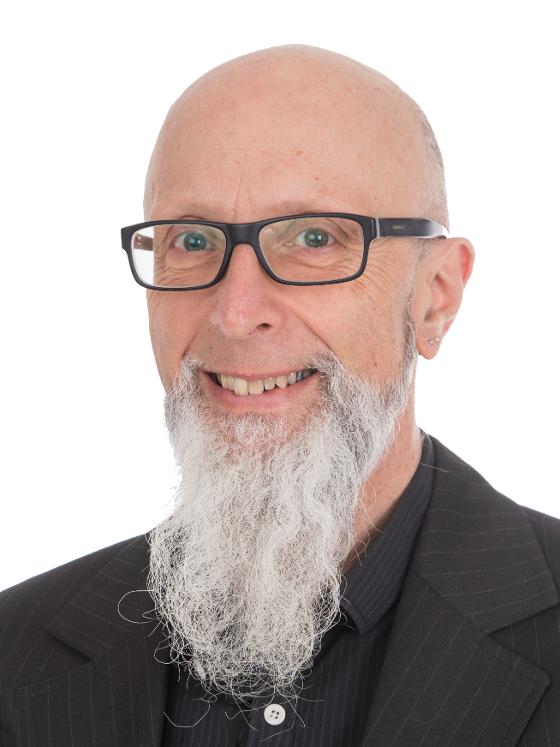
Horsch, Alexander
Alexander Horsch, born 1955 in Augsburg, Germany, is professor in computer science. His main scientific contributions are in the creation of systems for medical image analysis and for biosignal analysis, also in combination with telemedicine services. Early work focused on computer aided diagnosis of cancer, where I was one of the drivers in developing a system for the early detection of melanoma which was patented and integrated in a commercial product. Lately I worked on accelerometer data analysis for research on physical activity in the framework of large populations studies. Current emphasis is on methods from artificial intelligence, including machine learning and deep learning, with a focus on use cases from medicine, biology, and public health.
Other studies you may like
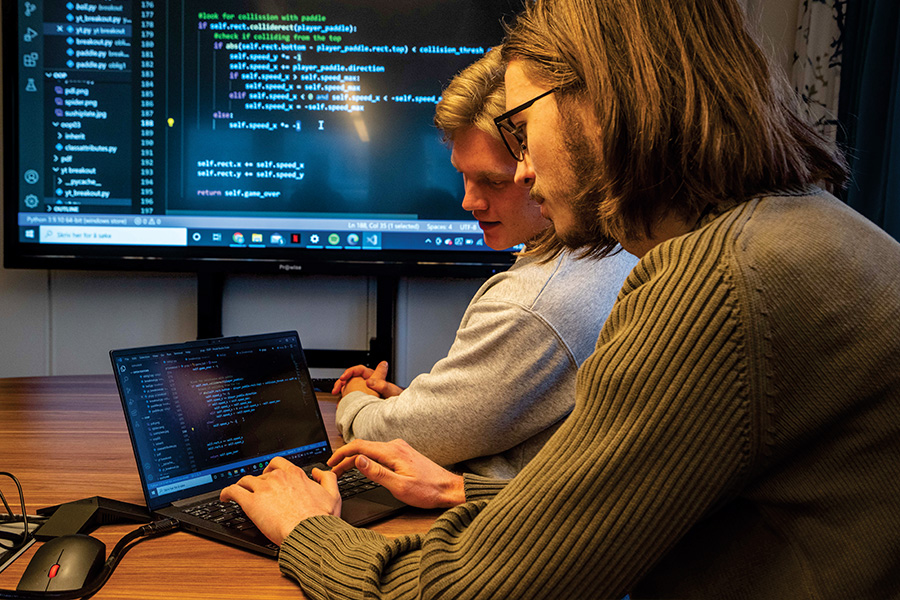
( Tromsø )
Ta en bachelor i informatikk og lær deg koding og programmering. Vær med på å utvikle ny teknologi f...
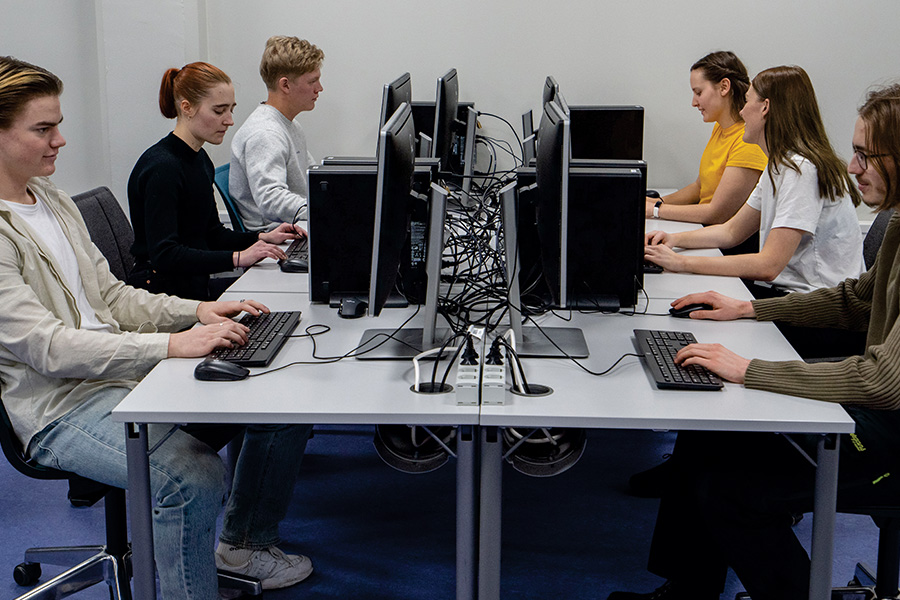
( Tromsø, )
Interessert i koding og problemløsing? Bli sivilingeniør i informatikk med studieretning cybersikker...
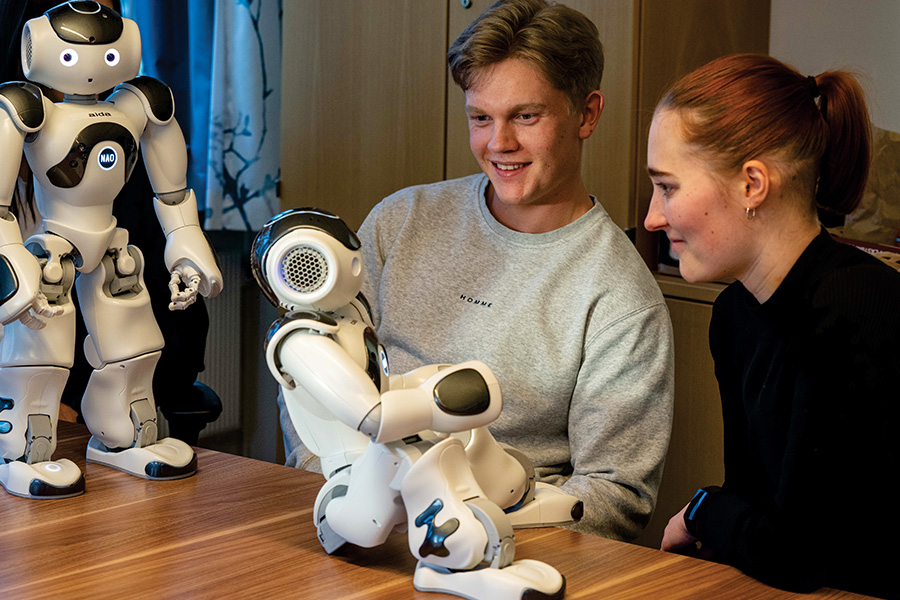
( Tromsø, )
Lær hvordan datamaskiner kan løse teknologiske utfordringer på egen hånd! Ved UiT kan du bli sivilin...
